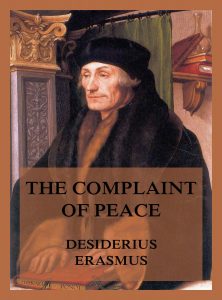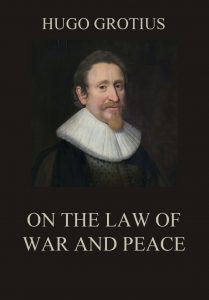-
Neueste Beiträge
Neueste Kommentare
- Jazzybee bei Geheimnisse einer Kaiserin
- Heinz Ludwig ErnstH bei Geheimnisse einer Kaiserin
- dinozeros bei Der Idiot
- Gudrun Philipp bei Der Winterkrieg – Finnland 1939/1940
- Thomas Wrage bei Der Winterkrieg – Finnland 1939/1940
Meta
Archive
- Juni 2024
- Mai 2024
- April 2024
- März 2024
- Februar 2024
- Januar 2024
- Dezember 2023
- November 2023
- Oktober 2023
- September 2023
- August 2023
- Juli 2023
- Juni 2023
- Mai 2023
- April 2023
- März 2023
- Februar 2023
- Januar 2023
- Dezember 2022
- November 2022
- Oktober 2022
- August 2022
- Juli 2022
- Juni 2022
- Mai 2022
- April 2022
- März 2022
- Februar 2022
- Januar 2022
- Dezember 2021
- November 2021
- Oktober 2021
- September 2021
- August 2021
- Juli 2021
- Juni 2021
- Mai 2021
- April 2021
- März 2021
- Februar 2021
- Januar 2021
- Dezember 2020
- November 2020
- Oktober 2020
- September 2020
- August 2020
- Juli 2020
- Juni 2020
- Mai 2020
- April 2020
- März 2020
- Februar 2020
- Januar 2020
- Dezember 2019
- November 2019
- Oktober 2019
- September 2019
- August 2019
- Juli 2019
- Juni 2019
- Mai 2019
- April 2019
- März 2019
- Februar 2019
- Januar 2019
- Dezember 2018
- November 2018
- Oktober 2018
- September 2018
- August 2018
- Juli 2018
- Juni 2018
- Mai 2018
- April 2018
- März 2018
- Februar 2018
- Januar 2018
- Dezember 2017
- November 2017
- Oktober 2017
- September 2017
- August 2017
- Juli 2017
- Juni 2017
- Mai 2017
- April 2017
- März 2017
- Januar 2017
- Dezember 2016
- November 2016
- Oktober 2016
- Juni 2016
- November 2011
Kategorien
- American History (English) (291)
- Alaska (1)
- American Revolution (3)
- California (27)
- Civil War (21)
- Connecticut (6)
- District of Columbia (9)
- Florida (4)
- Georgia (4)
- Historic Highways (12)
- Historical Travelogues (16)
- Illinois (9)
- Indiana (2)
- Maryland (6)
- Massachusetts (24)
- Michigan (7)
- Minnesota (1)
- Missouri (4)
- New Jersey (3)
- New York (25)
- North Carolina (3)
- Ohio (4)
- Oregon (1)
- Pennsylvania (9)
- Tennessee (1)
- Texas (16)
- The Presidents (49)
- Utah (2)
- Washington (3)
- Wisconsin (5)
- Ancient History (English) (13)
- Antike Philosophie (3)
- Astrologie (1)
- Biographies (English) (48)
- Chinesische Philosophie (3)
- Christmas (English) (18)
- Classics of Fiction (English) (663)
- Alcott, Louisa May (29)
- Austen, Jane (11)
- Barrie, James M. (14)
- Baum, L. Frank (17)
- Carroll, Lewis (7)
- Cather, Willa (4)
- Chesterton, G. K. (37)
- Chopin, Kate (4)
- Coleridge, Samuel Taylor (11)
- Collins, Wilkie (39)
- Dickens, Charles (20)
- Doyle, Arthur Conan (46)
- Eliot, George (14)
- Frederic, Harold (12)
- Frost, Robert (1)
- Gibran, Khalil (0)
- Goethe, Johann Wolfgang von (2)
- Hardy, Thomas (11)
- Hawthorne, Nathaniel (3)
- Hedin, Sven (6)
- Hodgson-Burnett, Frances (25)
- Hoffmann, E.T.A. (1)
- Hope, Anthony (31)
- Howells, William Dean (72)
- Hugo, Victor (25)
- Irving, Washington (12)
- Kneipp, Sebastian (2)
- Lang, Andrew (31)
- Longfellow, Henry Wadsworth (1)
- Melville, Herman (9)
- Montgomery, Lucy Maud (15)
- Scott, Sir Walter (8)
- Shelley, Mary Wollstonecraft (8)
- Stevenson, Robert Louis (34)
- Stories For Sleepless Nights (1)
- Stratton-Porter, Gene (16)
- Thoreau, Henry David (1)
- Toomer, Jean (2)
- Twain, Mark (33)
- Verne, Jules (6)
- Webster, Jean (8)
- Wells, H.G. (9)
- Wharton, Edith (1)
- Wollstonecraft, Mary (7)
- Culture, Sports & Entertainment (English) (1)
- Deutscher Novellenschatz (24)
- Deutschland unter Kaiser Wilhelm II. (8)
- Die Geschichte des Eisens (10)
- Die Schriften der Kirchenväter (104)
- Die verlorenen Bücher der Bibel (30)
- Elisabeth von Österreich – Die Kollektion (4)
- European History (English) (18)
- Fairy Tales and Mythology (English) (3)
- Kinderbücher (15)
- Krimis aus der goldenen Zeit (10)
- Lateinische Klassiker (10)
- Ammianus Marcellinus (1)
- Apuleius (2)
- Boethius (1)
- Catullus (1)
- Celsus (1)
- Cicero (2)
- Julius Caesar (2)
- Märchen & Sagen (13)
- Mathematik Zahlentrainer (38)
- Meisterwerke der Literatur (1.050)
- A (29)
- Achleitner-Arthur (0)
- Adler, Emma (1)
- Adlersfeld-Eufemia von (1)
- Aho-Juhani (0)
- Alcott, Louisa May (4)
- Alexis-Willibald (0)
- Alighieri-Dante (2)
- Allen-James (1)
- Altenberg-Peter (3)
- Andersen-Hans Christian (1)
- Andrejew-Leonid (1)
- Anzengruber-Ludwig (6)
- Arbiter-Gaius Petronius (1)
- Aretz-Gertrude (1)
- Aristophanes (1)
- Aristoteles (1)
- Arndt-Ernst Moritz (0)
- Arnim – Achim von (1)
- Arnim-Bettina von (0)
- Äsop (1)
- Auerbach-Berthold (1)
- Augustinus-Aurelius (1)
- Aurel-Marc (1)
- B (70)
- Bacon, Francis (1)
- Bahr-Hermann (10)
- Ball, Hugo (1)
- Balzac-Honoré de (4)
- Barbusse-Henri (1)
- Bassewitz-Gerd von (1)
- Baudelaire-Charles (1)
- Bauer, Karoline (1)
- Bauer-Otto (0)
- Baum-L. Frank (2)
- Bebel-August (0)
- Bechstein, Ludwig (1)
- Beck-Jürgen (2)
- Beecher-Stowe-Harriet (1)
- Benjamin-Walter (0)
- Berend-Alice (0)
- Bernhardi-Sophie (0)
- Bettauer-Hugo (2)
- Birt – Theodor (0)
- Bismarck-Otto von (1)
- Bjornson-Bjornstjerne (0)
- Blei-Franz (0)
- Bleibtreu-Karl (4)
- Boccaccio-Giovanni (1)
- Böhlau-Helene (0)
- Bote-Hermann (1)
- Boy Ed, Ida (8)
- Boyer-Jean Baptiste (1)
- Braun-Lily (0)
- Brentano-Clemens (8)
- Bronté-Charlotte (1)
- Bruun-Laurids (0)
- Büchner-Georg (2)
- Büchner-Luise (1)
- Bulwer-Lytton-Edward (1)
- Bunyan, John (3)
- Burckhardt-Jacob (0)
- Bürger-Gottfried August (1)
- Burnett-Frances Hodgson (1)
- Busch-Wilhelm (7)
- Byron-George (0)
- C (32)
- Carroll-Lewis (1)
- Carus-Carl Gustav (0)
- Chaucer-Geoffrey (1)
- Chesterton-Gilbert Keith (1)
- Choderlos-P.A. de Laclos (1)
- Christ-Lena (5)
- Cicero (2)
- Claudius-Matthias (1)
- Clausewitz-Carl von (1)
- Colerus-Egmont (3)
- Collins-Wilkie (2)
- Collodi-Carlo (1)
- Connell-Richard (1)
- Conrad-Joseph (3)
- Conrad-Michael Georg (1)
- Conwell-Russell (1)
- Cooper-James-Fenimore (5)
- Corvin-Otto von (1)
- Couperus-Louis (0)
- Crusenstolpe-Magnus Jacob (1)
- D (73)
- Dahn-Felix (0)
- Darwin-Charles (1)
- Daudet-Alphonse (10)
- Daumer-Georg Friedrich (1)
- Dauthendey-Max (8)
- Defoe-Daniel (3)
- Delbrück-Hans (0)
- Dickens-Charles (13)
- Diderot-Denis (3)
- Dohm-Hedwig (4)
- Dostojewski-Fjodor (8)
- Doyle-Arthur-Conan (5)
- Drews-Arthur (1)
- Droste-Hülshoff-Annette (2)
- Droysen-Johann Gustav (1)
- Dumas-Alexandre (9)
- Duncker-Dora (4)
- E (43)
- Ebers-Georg (4)
- Ebner-Eschenbach-Marie (0)
- Eckstein-Ernst (1)
- Eichendorff-Joseph von (2)
- Elvestad-Sven (8)
- Emmerich-Ferdinand (7)
- Engel-Georg (4)
- Engels-Friedrich (1)
- Ernst-Otto (0)
- Ernst-Paul (0)
- Ertl-Emil (0)
- Eschenbach-Wolfram von (1)
- Eschstruth-Nataly von (9)
- Essig-Hermann (3)
- Eucken-Rudolf (0)
- Eulenburg-Philipp zu (1)
- Euripides (1)
- Eyth-Max (1)
- F (73)
- Faber-Kurt (5)
- Falke-Gustav (6)
- Federer-Heinrich (4)
- Felder-Franz Michael (1)
- Feuerbach-Ludwig (1)
- Fichte-Johann Gottlieb (0)
- Fielding-Henry (2)
- Flammarion-Camille (1)
- Flaubert-Gustave (1)
- Fletcher-Joseph Smith (5)
- Fock-Gorch (2)
- Fontane-Theodor (15)
- Forster-Georg (1)
- Fouqué-Friedrich-de-Motte (0)
- Frankau, Julia (1)
- Franklin-Benjamin (1)
- Franzos-Karl Emil (8)
- Frapan, Ilse (2)
- Freud-Sigmund (5)
- Freytag-Gustav (7)
- Friedell-Egon (4)
- G (72)
- Gaboriau-Emile (1)
- Galen-Philipp (1)
- Ganghofer-Ludwig (15)
- Garschin-Wsewolod (1)
- Gellert-Christian Fürch. (1)
- George-Stefan (1)
- Gerhardt-Paul (1)
- Gerstäcker-Friedrich (3)
- Gibbon-Edward (1)
- Gilman-Charlotte-Perkins (1)
- Gjellerup-Karl Adolph (5)
- Glauser-Friedrich (7)
- Goethe-Johann W. von (6)
- Gogol-Nikolai (3)
- Goldoni-Carlo (1)
- Gontscharow-Iwan (1)
- Gorki-Maxim (4)
- Gotthelf-Jeremias (6)
- Gregorovius-Ferdinand (1)
- Grimmelshausen-Hans Jakob (1)
- Günther-Agnes (1)
- Gutzkow-Karl (10)
- H (66)
- Hahn-Hahn-Ida Gräfin (5)
- Hansjakob-Heinrich (3)
- Hasek-Jaroslav (1)
- Hauff-Wilhelm (5)
- Hebel-Johann Peter (2)
- Hedin, Sven (2)
- Heer-Jakob Christoph (7)
- Hegel-Georg Wilhelm (4)
- Heiberg-Hermann (5)
- Heine-Heinrich (2)
- Herder-Johann Gottfried (1)
- Herodot (1)
- Hillern-Wilhelmine von (1)
- Hindenburg-Paul von (1)
- Hoffmann-Andreas Gottlieb (1)
- Hoffmann-E.T.A. (7)
- Hofmannsthal-Hugo von (7)
- Hölderlin-Friedrich (2)
- Holub-Emil (1)
- Homer (2)
- Horvath-Ödön von (1)
- Hugo-Victor (2)
- Huysmans-Joris Karl (1)
- I (10)
- Ibsen-Henrik (7)
- Irving-Washington (3)
- J (6)
- Jensen-Wilhelm (6)
- K (61)
- Kafka-Franz (3)
- Kant-Immanuel (2)
- Katharina-die-Große (1)
- Keats-John (1)
- Keller-Gottfried (4)
- Keller-Paul (7)
- Kempen-Thomas von (1)
- Keyserling-Eduard von (6)
- Kierkegaard-Sören (3)
- Kipling-Rudyard (4)
- Klabund (1)
- Kleist-Heinrich von (2)
- Klingemann-August (1)
- Klinger-Friedrich Maximilian (1)
- Klopstock-Friedrich Gottlieb (1)
- Kneipp, Sebastian (2)
- Knigge-Adolf Freiherr von (1)
- Koch-Rosalie (1)
- Korolenko-Wladimir (1)
- Kotzebue, August von (1)
- Kraft-Robert (5)
- Kraus-Karl (4)
- Kropotkin, Pjotr (0)
- Kropotkin-Pjotr (2)
- Kugler-Franz (1)
- Kurz-Hermann (3)
- Kyber-Manfred (2)
- L (45)
- La Roche-Sophie von (1)
- Lafontaine-Jean de (1)
- Lagerlöf-Selma (4)
- Landsberger-Artur (7)
- Laßwitz-Kurd (1)
- Laube-Heinrich (6)
- Lermontow-Michail (1)
- Lessing-Gotthold Ephraim (3)
- Lichtenberg-Georg Christoph (1)
- Lienhard-Friedrich (4)
- Lindau-Paul (1)
- Lofting-Hugh (2)
- Löns-Hermann (2)
- Loti-Pierre (2)
- Lovecraft, H. P. (3)
- Ludwig-Otto (3)
- Luther-Martin (3)
- M (105)
- Macaulay-Thomas B. (2)
- MacDonald-George (1)
- Machiavelli-Niccolo (2)
- Mackay-John Henry (6)
- Mann, Heinrich (10)
- Manzoni-Alessandro (1)
- Marlitt-Eugenie (9)
- Marx-Karl (2)
- Maupassant-Guy de (1)
- Mauthner-Fritz (0)
- May-Karl (37)
- Meding-Oskar (9)
- Mereschkowski-Dmitri (1)
- Meyer-Eduard (0)
- Meyrink-Gustav (1)
- Milton-John (1)
- Molière (4)
- Mommsen-Theodor (6)
- Montaigne-Michel de (1)
- Morgenstern-Christian (1)
- Mörike-Eduard (3)
- Moritz-Karl Philipp (1)
- Morus-Thomas (1)
- Moszkowski-Alexander (2)
- Mühsam-Erich (1)
- Multatuli (1)
- Muther-Richard (1)
- N (13)
- Nestroy-Johann (2)
- Niese-Charlotte (4)
- Nietzsche-Friedrich (5)
- Northup-Solomon (1)
- Novalis (1)
- O (14)
- Ohnet-Georges (9)
- Ossietzky-Carl von (0)
- Otto-Louise (4)
- Ovid (1)
- P (21)
- Panizza-Oskar (3)
- Petrarca-Francesco (1)
- Pfalz-Liselotte von der (1)
- Philon (0)
- Platon (5)
- Poe-Edgar Allan (1)
- Potapenko-Ignatji (1)
- Prévost-Marcel (5)
- Puschkin-Alexander (2)
- Pyle, Ernie (2)
- R (41)
- Rabelais-Francois (1)
- Rellstab-Ludwig (2)
- Retcliffe-Sir John (2)
- Reymont-Wladyslaw (1)
- Rhoden-Emmy von (1)
- Richthofen-Manfred von (1)
- Rilke-Rainer Maria (2)
- Ringelnatz-Joachim (2)
- Rohlfs-Gerhard (1)
- Rolfes, Eugen (1)
- Rosegger-Peter (11)
- Rosen-Erwin (1)
- Rostand-Edmond (2)
- Roth-Joseph (8)
- Rousseau-Jean Jacques (3)
- Rückert-Friedrich (2)
- S (102)
- Sade-Marquis de (1)
- Saint Exupéry, Antoine de (1)
- Salgari-Emilio (1)
- Sapper-Agnes (1)
- Scheerbart-Paul (10)
- Schickele-René (4)
- Schiller-Friedrich (11)
- Schlegel-Friedrich (1)
- Schlenther-Paul (1)
- Schnitzler-Arthur (2)
- Schopenhauer-Arthur (3)
- Schreckenbach-Paul (2)
- Schröder-Devrient-Wilhelmine (1)
- Schubin, Ossip (1)
- Schurig-Arthur (1)
- Schwab-Gustav (0)
- Scott-Sir Walter (1)
- Semjonow-Sergej (1)
- Seneca-Lucius Annaeus (0)
- Seume-Johann Gottfried (1)
- Shakespeare-William (16)
- Shelley-Mary Wollstonecraft (1)
- Sienkiewicz-Henryk (1)
- Silesius-Angelus (1)
- Simmel-Georg (0)
- Simrock-Karl (2)
- Sonnleitner-Alois Theodor (3)
- Sophokles (5)
- Spengler-Oswald (2)
- Spindler-Karl (3)
- Spinoza-Baruch de (2)
- Sprenger-Jakob (1)
- Spyri-Johanna (0)
- Stael-Germaine de (1)
- Steiner-Rudolf (2)
- Stendhal (3)
- Sterne-Laurence (1)
- Stevenson-Robert Louis (1)
- Stifter-Adalbert (1)
- Stoker-Bram (1)
- Storm-Theodor (5)
- Straßburg-Gottfried von (1)
- Stucken-Eduard (2)
- Suttner-Bertha von (2)
- Swift-Jonathan (1)
- T (38)
- Tagore-Rabindranath (1)
- Thoma-Ludwig (5)
- Thoreau-Henry David (1)
- Tieck-Ludwig (1)
- Tolstoi-Leo (11)
- Treller-Franz (1)
- Tschechow-Anton (6)
- Tucholsky-Kurt (3)
- Turgenew-Ivan (2)
- Twain-Mark (7)
- U (10)
- Ungar-Hermann (0)
- Ury-Else (10)
- V (28)
- Verne-Jules (26)
- Voltaire (1)
- W (63)
- Wagner-Richard (1)
- Wallace-Edgar (46)
- Wallace-Lewis (1)
- Walpole-Horace (1)
- Wassermann-Jakob (2)
- Weber-Max (0)
- Wells-H. G. (2)
- Whitman-Walt (1)
- Wilde-Oscar (5)
- Wolzogen-Caroline von (1)
- Wörishöffer-Sophie (1)
- Wundt-Wilhelm (1)
- Wyss-Johann David (1)
- Y (1)
- Young, Filson (1)
- Z (30)
- Zola-Emile (18)
- Zweig-Stefan (11)
- A (29)
- Middle East History (English) (20)
- Mind Power (English) (30)
- Opern der Welt (11)
- Philosophie (4)
- Philosophy & Politics (English) (151)
- 17th Century (1)
- 18th Century (49)
- 19th Century (61)
- 20th Century (2)
- Ancient (24)
- Middle Ages (2)
- Renaissance (14)
- Poetik (4)
- Recht (4)
- Religionen der Welt (92)
- Calvin, Johannes (17)
- Sachbücher (30)
- Sam Caine (Krimiserie) (5)
- Schlachten des II. Weltkriegs (45)
- Science (English) (1)
- 19th Century (1)
- Sport (0)
- The Sacred Books (English) (298)
- Astrology (2)
- Biblical Reference (3)
- Biblical Studies & Commentaries (61)
- Buddhism (27)
- Children's Great Bible Texts (8)
- Christology (18)
- Church History (63)
- Divination (4)
- Ethnic & Tribal (6)
- Freemasonry (18)
- Gnosticism (3)
- Judaism (3)
- Life of Jesus (2)
- Mariology (4)
- Mysticism (33)
- Occultism (22)
- Prayers & Sermons (3)
- Protestant (1)
- Spirituality (16)
- The Sacred Writings (33)
- Theosophy (3)
- Yoga (13)
- Weihnachten (11)
- Weltgeschichte (14)
- 18. Jahrhundert (1)
- 19. Jahrhundert (9)
- Altertum (0)
- I. Weltkrieg (3)
- II. Weltkrieg (1)
- World History (English) (17)
- American History (English) (291)
Archiv der Kategorie: Renaissance
Manual of a Christian Knight
Manual of a Christian Knight – Desiderius Erasmus
We get some sense of things which were moving deeply in Erasmus’ life from his “Manual of a Christian Knight.” We find here a characteristic criticism of religious forms taking the place of religious substance. We find a tremendous emphasis upon the intelligence which in no way lessens the emphasis on vital piety. Prayer and knowledge are to work together in the life of the Christian knight. The inner is to give force and power to the outer. The outer is never to take the place of the inner. The warfare and the weapons and the true wisdom of the Christian are discussed. There is many a pithy judgment: “The way to … Read more.../Mehr lesen ...
Veröffentlicht unter Philosophy & Politics (English), Renaissance
Schreib einen Kommentar
The Praise of Folly
The Praise of Folly – Desiderius Erasmus
Erasmus reached England after a stay in Italy early in the summer of 1510. Soon afterwards, in Thomas More’s house at Bucklersbury, he rapidly wrote his famous satire, the Encomium Moriae, or “Praise of Folly,” in which Folly celebrates her own praises as the great source of human pleasures. He had been meditating this piece on the long journey from Rome; it is a kaleidoscope of his experiences in Italy, and of earlier memories. As to the title, Moria, the Greek word for “folly,” was a playful allusion, of course, to the name of his wise and witty host. This “Praise of Folly” is a satire, not only in the modern but in … Read more.../Mehr lesen ...
Veröffentlicht unter Philosophy & Politics (English), Renaissance
Schreib einen Kommentar
The Complaint of Peace
The Complaint of Peace – Desiderius Erasmus
Desiderius Erasmus was a very human man. A humanist, who was no more humane than the rest of the wits and cynics of his time, there was in him a plenty of human weaknesses and uglinesses. Nevertheless he does strike occasionally a note that is genuinely human, universally true, accordant with all the race of men. And this is eminently so of the “Complaint of Peace.” The complaints which he puts in the mouth of Peace might have come from the lips of Divae Paris with as much verisimilitude as they did when Erasmus echoed them many centuries ago.
Format: eBook.
The Complaint of Peace.
ISBN: 9783849653811.
Excerpt … Read more.../Mehr lesen ...
Veröffentlicht unter Philosophy & Politics (English), Renaissance
Schreib einen Kommentar
The Colloquies, Volume 2
The Colloquies, Volume 2 – Desiderius Erasmus
Erasmus’ services to a new way of learning took various forms. He wrote school-books, bringing out his view that boys were kept too long over grammar, and ought to begin reading some good author as soon as possible. His own “Colloquies” were meant partly as models of colloquial Latin; the book was long a standard one in education. These lively dialogues are prose idylls with an ethical purpose,—the dramatic expression of the writer’s views on the life of the day. Thus the dialogue between the Learned Lady and the Abbot depicts monastic illiteracy; that between the Soldier and the Carthusian brings out the seamy side of the military calling. Lucian has influenced the … Read more.../Mehr lesen ...
Veröffentlicht unter Philosophy & Politics (English), Renaissance
Schreib einen Kommentar
The Colloquies, Volume 1
The Colloquies, Volume 1 – Desiderius Erasmus
Erasmus’ services to a new way of learning took various forms. He wrote school-books, bringing out his view that boys were kept too long over grammar, and ought to begin reading some good author as soon as possible. His own “Colloquies” were meant partly as models of colloquial Latin; the book was long a standard one in education. These lively dialogues are prose idylls with an ethical purpose,—the dramatic expression of the writer’s views on the life of the day. Thus the dialogue between the Learned Lady and the Abbot depicts monastic illiteracy; that between the Soldier and the Carthusian brings out the seamy side of the military calling. Lucian has influenced the … Read more.../Mehr lesen ...
Veröffentlicht unter Philosophy & Politics (English), Renaissance
Schreib einen Kommentar
The Method, Meditations and Philosophy of Descartes
The Method, Meditations and Philosophy of Descartes – René Descartes
This edition includes the quintessential works of Descartes, to whom modern learning is indebted for some of the most potent factors in its advancement. These are: in Mathematics, the invention of the Binomial Theorem and the application of Algebra to Geometry in the Analytical Geometry; in Physics, the suggestion of the evolution of the universe through Vortices and the discovery of the laws of the Refraction of Light; in Physiology, the doctrine of the Animal Spirits and the theory of the Mechanism of the soul’s operation in the body; in Philosophy, the finding of the ultimate reality in subjective consciousness and the deducting thence of an argument for, if not … Read more.../Mehr lesen ...
Veröffentlicht unter Philosophy & Politics (English), Renaissance
Schreib einen Kommentar
The Fable of the Bees
The Fable of the Bees – Bernard de Mandeville
Mandeville’s philosophy gave great offence at the time, and has always been stigmatized as false, cynical and degrading. His main thesis is that the actions of men cannot be divided into lower and higher. In the Fable he shows a society possessed of all the virtues “blest with content and honesty,” falling into apathy and utterly paralyzed. The absence of self-love is the death of progress. The so-called higher virtues are mere hypocrisy, and arise from the selfish desire to be superior to the brutes. He endeavours to show that all social laws are the crystallized results of selfish aggrandizement and protective alliances among the weak.
… Read more.../Mehr lesen ...
Veröffentlicht unter Philosophy & Politics (English), Renaissance
Schreib einen Kommentar
Essential Writings
Essential Writings – Nicholas Barbon
Nicholas Barbon was an English economist, physician, and financial speculator. He is widely conceived as one of the first proponents of the free market. This edition includes his most prominent essays:
An Apology For The Builder
A Discourse Of Trade
A Discourse Concerning
Coining The New Money Lighter
Format: Paperback.
Essential Writings
ISBN: 9783849687793
Available at amazon.com and other venues.
Biography of Nicholas Barbon (from Wikipedia):
Nicholas Barbon was the eldest son of Praise-God Barebone (or Barbon), after whom the Barebone’s Parliament of 1653—the predecessor of Oliver Cromwell’s Protectorate—was named. Praise-God’s reputed Christian name was “Unless-Jesus-Christ-Had-Died-For-Thee-Thou-Hadst-Been-Damned”, a variant of his son’s middle name. He became a religious separatist with Millenarianist beliefs, with … Read more.../Mehr lesen ...
Veröffentlicht unter Philosophy & Politics (English), Renaissance
Schreib einen Kommentar
On the Law of War and Peace
On the Law of War and Peace – Hugo Grotius
“On The Law of War and Peace” was translated into many languages, and most law schools adopted it as the basis of the right of nations. Princes and statesmen consulted the book, and just as Alexander the Great always had a copy of Homer’s ‘Iliad,’ so the great Gustavus Adolphus always had with him a copy of Grotius’ work, to remind himself that even the most successful general must respect some laws. Grotius’ strength lies in his moderation and in the fact that he quotes copiously from the best authorities to fortify his views .
Format: Paperback.
On the Law of War and … Read more.../Mehr lesen ...
Veröffentlicht unter Philosophy & Politics (English), Renaissance
Schreib einen Kommentar
The Wisdom of the Ancients
The Wisdom of the Ancients – Sir Francis Bacon
Bacon published this interesting little work in 1609. It contains thirty-one fables abounding with a union of deep thought and poetic beauty. In most fables he explains the common but erroneous supposition that knowledge and the conformity of the will, knowing and acting, are convertible terms.
Format: Paperback
The Wisdom of the Ancients.
ISBN: 9783849691844
Available at amazon.com and other venues.
Biography of Francis Bacon (from Wikipedia):
Francis Bacon, 1st Viscount St Alban, PC KC (22 January 1561 – 9 April 1626) was an English philosopher, statesman, scientist, jurist, orator, and author. He served both as Attorney General and as Lord Chancellor of England. After … Read more.../Mehr lesen ...
Veröffentlicht unter Philosophy & Politics (English), Renaissance
Schreib einen Kommentar





